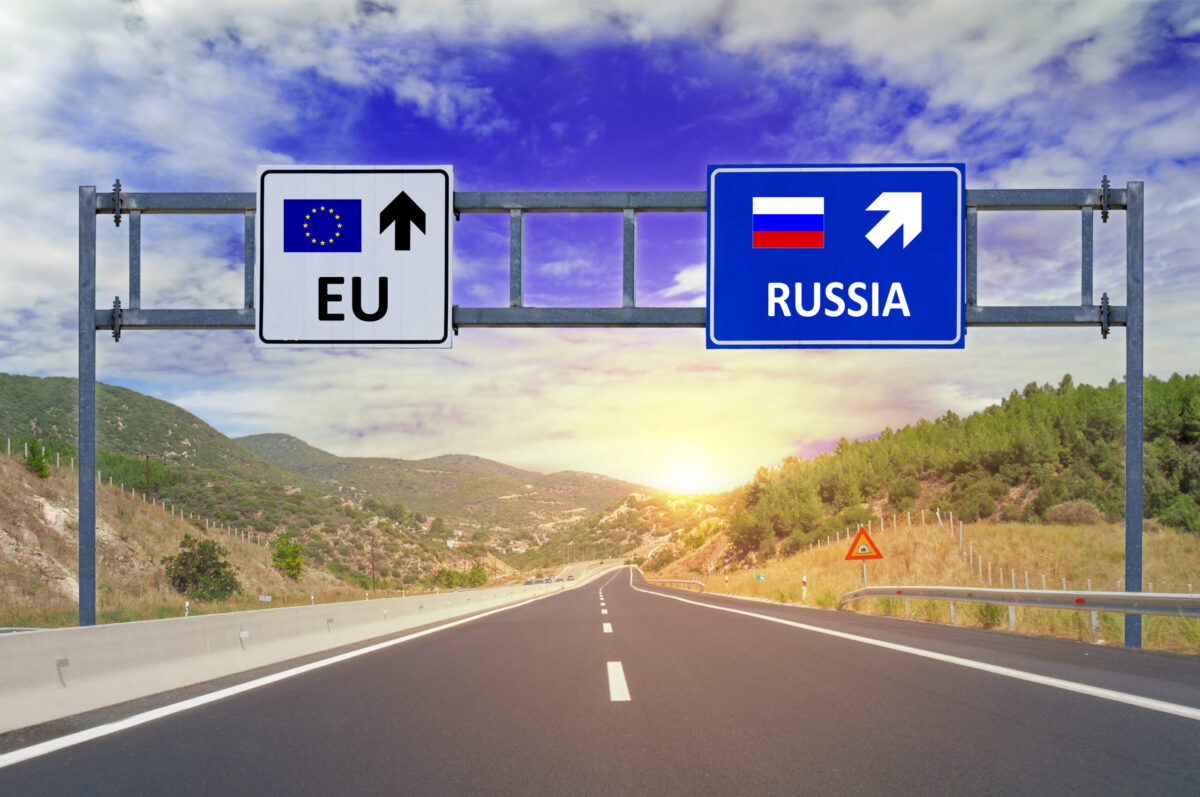Twenty years eaten by locusts
 Recently, most people were quite struck by the fact that Željko Joksimović was a guest at the Eurovision Song Contest and nostalgically repeated the song “Lane moje” with which he had almost won in 2004 – the presenters emphasised that it had happened exactly 20 years ago. Twenty years?? It seems like yesterday. But it was a long time ago, as we can see from how different the world was back then. Mostly, better. And everyone started to “rewind” in their heads what it had looked like then and what it is like now. And, we expected a much better world in 2024 than the one we live in now.
Recently, most people were quite struck by the fact that Željko Joksimović was a guest at the Eurovision Song Contest and nostalgically repeated the song “Lane moje” with which he had almost won in 2004 – the presenters emphasised that it had happened exactly 20 years ago. Twenty years?? It seems like yesterday. But it was a long time ago, as we can see from how different the world was back then. Mostly, better. And everyone started to “rewind” in their heads what it had looked like then and what it is like now. And, we expected a much better world in 2024 than the one we live in now.
THE EUROPEAN UNION WAS THE MOST ATTRACTIVE TARGET
On May 1, 2004, ten countries were admitted to the European Union, and that day is celebrated as the “Big Bang” – Slovenia, the Czech Republic, Slovakia, Hungary, Poland, Estonia, Latvia, Lithuania, Cyprus (without Northern Cyprus) and Malta became new members, with a clear indication that in 2007, Romania and Bulgaria would join, followed by Croatia and… so on. And what happened was that in the first 15 years after the fall of the Berlin Wall, 13 countries were admitted to the EU, and then in the next 20 years – only three. In the meantime, Iceland voluntarily withdrew from the negotiations, Turkey became completely discouraged, and the EU clearly emphasised that new members would not be admitted if they did not control part of their territory – and a lot of them have such territories: Moldova, Serbia, Ukraine, Georgia and until recently Azerbaijan. Cyprus seemed to all of us to be an excellent starting point and a model for joining, but the EU said – even one Cyprus is giving us a headache, and we can’t afford any others. Zoran Živković, the Prime Minister of Serbia at the time, emphasised that Serbia would most likely join in 2007, spurred by the Thessaloniki agenda a year earlier. “Big Bang #2” was expected, where Serbia, Bosnia and Herzegovina, Macedonia (it was not North back then), Albania, and Montenegro would certainly be accepted in the first round, while others, further east, would perhaps follow later. Kofi Annan proposed an almost perfect plan for the unification of Cyprus in 2004, which was rejected by the Greek Cypriots because of the parts they requested to be corrected, so it was expected that the corrected version would be adopted in the next referendum. Today, the self-proclaimed Turkish Republic of Northern Cyprus and Greek Southern Cyprus are further apart than at almost any other point in history.
ERROR AFTER ERROR
The Thessaloniki agenda was never realised, and the EU started to behave in a dissonant and self-destructive manner – in 2008, all but five members recognised the self-proclaimed independence of Kosovo, and in response to that and the military action of Mikheil Saakashvili, Russia intervened in Georgia and recognised the independence of Abkhazia and South Ossetia. Many EU countries supported the “Arab Spring” and, with the USA, enabled the overthrowing and murder of Muammar al-Gaddafi and thus the endless civil war in Libya, huge numbers of refugees, and the emergence of the Islamic State, and a similar thing happened in Syria, where the country and President Bashar al-Assad survived, but millions of refugees headed to Europe. Instead of creating a stable Iraq after the 2003 intervention, the Western powers allowed Iraq to begin to disintegrate across all lines, producing more of the Islamic State and more refugees. Due to the inept handling of the refugee crisis, the anti-immigrant rhetoric intensified and the right wing, including the extreme right, grew stronger. In the next awkward phase, in response to the World Economic Crisis and the European Sovereign Debt Crisis, countries led by Germany imposed terrible conditions on the “PIIGS” countries, which crippled Italy and especially Greece for 15 years. Turkey completely abandoned the EU and began to build its own zone of influence, politically, economically, and militarily. One mistake can be survived, but this amount of mistakes has seriously weakened the reputation and attractiveness of the EU.
The year 2004 was a time when it seemed that the whole of Europe would finally, after all the wars of the ’90s and the poverty, embrace and sing at a colourful party. We were sorely mistaken.
THE EASTERN HALF OF EUROPE WAS BRIGHT
If we look to the east of the new EU borders, set in 2007 and 2013, we see that the breakdown of the system is even greater. Initially a leader benevolent towards the West (and compared to Peter the Great, due to his pro-Western reforms and the same city of origin), Putin pointed out at the Munich conference in 2007 that it seemed that Europe did not want Russia, thereby ominously announcing what would happen next. And this was the same man who had signed the “Partnership for Peace” and even proposed that Russia join NATO. Back then it seemed that everything was possible – the “coloured revolutions” in Ukraine and Georgia were bloodless, they were received peacefully in Russia, and the pro-Russian forces regrouped and prepared for a rematch – but in the elections, which soon happened in Ukraine. No one in their right mind could have predicted such an escalation 20 years later. Russia’s biggest cultural export at the time was – imagine this – a female pop group of two (supposedly) gay girls, called t.a.t.u; soon “propaganda of non-traditional sexuality” would be banned in Russia. Countries were slowly recovering from the tragic ’90s and growth rates were high while birth rates were increasing for the first time since the collapse of the USSR. Visas started to be abolished on a large scale – in 2004, Serbia would wait only five years for the “white Schengen list”, like many other countries, but the foundations were laid. At Eurovision, Estonia won first, then Latvia, then Ukraine in 2004, and that year Serbia and Montenegro returned to the competition, Moldova made its debut in 2005, Serbia won in 2007, Russia in 2008, and Azerbaijan in 2011… It was a time when it seemed that the whole of Europe would finally, after all the wars of the ’90s and the poverty, embrace and sing at a colourful party. We were sorely mistaken.
SOCIAL NETWORKS AND DIVISIONS
Ideologically, societies have become deeply divided. People are divided into “us or them”, and “if you are not with us, then you are against us”. The cancel culture has become terrible, imposing norms and discussions such as those about gender, and the participation of trans athletes in competitions, and social media has only increased the general noise, arguments, and cacophony of opinions. Initially a form of entertainment, it has turned into a place of bitter conflicts. The music industry has become a sphere where only the big names make money and streaming platforms like Spotify take huge profits, leaving authors with peanuts. People have become more superficial, walking the streets like zombies looking at their mobile phones where they “find life”, instead of living real life. The appearance on social networks has become more important than life itself, and those who believe that someone lives better than them or looks better, fall into depression – human interactions have decreased, and every year the number of sexual relations decreases too, which is (and also is not) paradoxical – people socialise virtually, not physically, and with all the power of dating apps. The alienation has intensified.
We have taken a wrong turn somewhere in these 20 years, and more than once. Whether we can correct it, or at least not make more such mistakes in the next 20 years, we do not know.
WHO IS THE WINNER?
If the countries where the “color revolutions” and the “Arab Spring” took place have lost a lot, the winner, for sure, is – China. Like the other countries of the “Global South”, which took over production and became giants. Also, the USA is a winner in a way, while Europe is scrambling to “act morally in Ukraine”, “make an energy transition”, “contain China” etc. America triumphs both economically and politically. Furthermore, Arab countries that have avoided ideology, such as the UAE, Qatar, Saudi Arabia, and others in that zone, have become the centres of world events in the past 20 years. The biggest airlines are now from Asia, Qatar Airways and Emirates rule the sky, the FIFA World Cup took place in Qatar, and in 10 years it will be held in Saudi Arabia, Abu Dhabi has the Louvre, Dubai is a world attraction, the Saudis are building even more gigantic projects and allowing tourists visits, and foreigners can dress more casually. Back in 2004, Spain became the first country to legalise same-sex marriage, and now there are many such countries. But, on the other hand, many countries have tightened their stance on the public display of LGBTQ ideas and the population, which we can declare “partial winners”. Our summers are getting hotter, we haven’t managed to significantly slow down global warming, we have almost no winters, and we have “supercell storms” similar to hurricanes and tornadoes. If the ice melts at the poles and the sea level rises, if the storms get worse, and the climate changes in many places, this will mean the appearance of completely new plants and animals and the disappearance of old ones, and therefore old practices too. Maybe what awaits us in the next 20 years are millions of migrants, water shortages, and new viruses under the melted ice that were harmless to animals hundreds of thousands of years ago, but are not harmless to us.
We have taken a wrong turn somewhere in these 20 years, and more than once. Whether we can correct it, or at least not make more such mistakes in the next 20 years, we do not know.
Author: Žikica Mikošević
